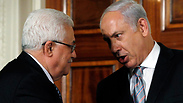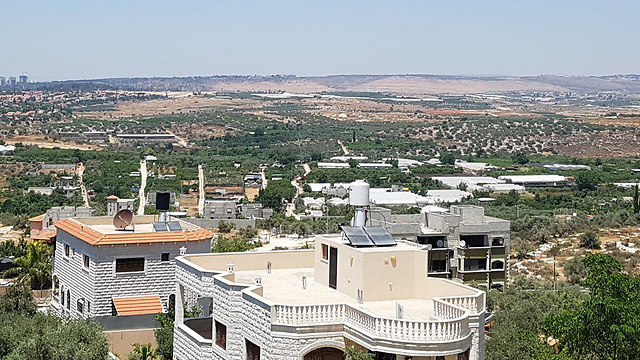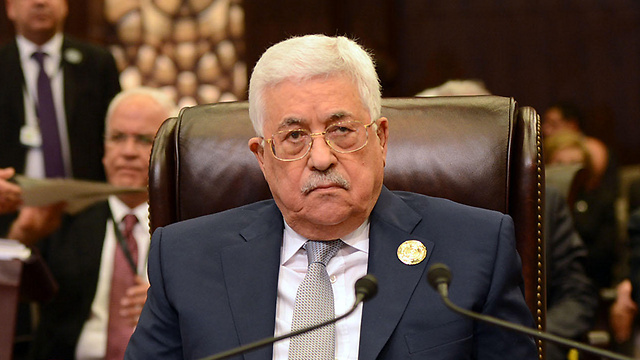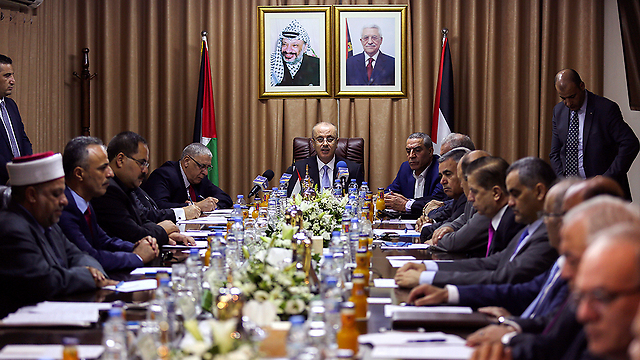

Cabinet decision to nix PA talks won’t change a thing
Analysis: The security coordination will continue, the gestures won’t be cancelled and the plans for massive construction in the settlements will remain on paper for now. The decision to suspend peace negotiations until Hamas is disarmed doesn’t change the fact that there have been no talks with the Palestinians since 2014, and even Abbas understands that a peace agreement with Israel won’t be signed under his leadership.
Prime Minister Benjamin Netanyahu updated US Ambassador to Israel David Friedman on Israel’s stance, which could make it very difficult for the Americans to restart peace talks. To support the stance, the Israelis stressed that US President Donald Trump stated in his speech Friday that Hamas was a terror organization.
The decision could also cause trouble for the Egyptians, who brokered the Fatah-Hamas reconciliation agreement over interests that mostly have to do with the battle against ISIS in Sinai.

The cabinet meeting was divided into two discussions, each lasting two and a half hours. The ministers were briefed by all security bodies: The IDF, the Shin Bet and the Mossad. In a very thorough discussion, the defense officials stressed the Palestinian reconciliation was facing a lot of hurdles, and chances of real reconciliation were slim. The cabinet decision basically affirms a similar 2014 cabinet decision which followed the creation of a previous Palestinian reconciliation government.
Nothing is actually changing. Israel isn’t halting its security coordination with the Palestinians, which is in Israel's interest. The gestures Israel decided on before Trump’s visit will continue too. Israel will keep transferring tax money it collects on the Palestinian Authority's behalf and will not impose any sanctions on the PA.
The Qalqilya building plan will remain suspended until further notice and will not be advanced under the current situation. Despite pressure from settler leaders, the cabinet did not discuss massive construction in the settlements or building West Bank bypass roads at a cost of NIS 800 million. As a result, the settlers are planning to step up their protest activities against Netanyahu.
We must not forget that although the cabinet stated there would be no negotiations until Hamas is disarmed, there have actually been no negotiations for the past three years. The Americans have so far failed to come up with an outline for talks, so the terms unanimously approved by the cabinet apply to new negotiations. On the other hand, senior ministers say this is a significant decision, as the chances the Americans would be able to bring the Palestinians to the negotiating table have become slim.
Senior government officials said Israel was unable to accept a situation in which Hamas joins the Palestinian government while holding on to its weapons and pursuing the production of missiles against Israel. Netanyahu said during the cabinet meeting, “We won’t let it turn into a terror organization with under the guide of a state, like the situation in Lebanon.”
The defense officials said Abbas was also concerned he would have the “Hezbollah model” within his own home. Cabinet ministers argue that was what would actually happen: Abbas will take civil control over Gaza, and Hamas will remain a military organization like Hezbollah in Lebanon.
The cabinet decision states: “Following previous decisions, the Israeli government will not hold political talks with a Palestinian government that is supported by Hamas, a terror organization calling for the destruction of Israel, as long as the following conditions are not fulfilled:
- Hamas will recognize Israel and desist from terror in accordance with the Quarter conditions.
- Hamas’ disarmament.
- The return of bodies of Israeli soldiers and Israeli civilians held in Gaza.
- Gaza will be placed under the full security control of the Palestinian Authority, including border crossings to prevent smuggling.
- The PA will continue its activities against Hamas’ terror infrastructures in Judea and Samaria.
- Hamas’ disengagement from Iran.
- Funds and humanitarian equipment will be allowed to enter Gaza only through the PA and the systems created for that purpose.”

Senior state officials say the conditions set by Israel actually bolster Abbas in his reconciliation talks with Hamas. “Abbas doesn’t want the Hezbollah model in Gaza either. He is afraid of the tunnels. He is afraid of Hamas’ growing strength and of its weapons. These terms are convenient for Abbas,” one of the sources said.
Abbas favors foothold in Gaza over negotiations
The driving forces behind the wording of the cabinet decision were Ministers Ze’ev Elkin and Naftali Bennett, who pushed for the reaffirmation of the 2014 cabinet decision that the Israeli government would not hold political negotiations with a Palestinian government supported by Hamas.
The word “supported” was used to apply to a situation in which the government won’t include ministers who are actually affiliated with Hamas, but will still be supported by the organization—just like the current government led by Rami Hamdallah, which was established following the 2014 reconciliation. The Palestinians used the claim that the government includes “no Hamas members” to convince the Americans not to cut their aid.
At first, the right-wing ministers believed the prime minister would try to avoid a conflict with the Americans and refuse to adopt an overly tough policy against the Palestinians. They thought Netanyahu would drag his feet and prefer not to make any decision.
PA officials, meanwhile, appeared unfazed by the cabinet’s decision to suspend the negotiations, as such negotiations have not been held since 2014.
While the American team has not given up on the possibility of bringing the two sides to the negotiating table, the Palestinians believe the chances that the ultimate deal would be signed with Prime Minister Netanyahu are slim to nonexistent. It seems Abbas has also come to terms with the fact he won’t be the Palestinian leader who eventually signs a peace agreement with Israel.
The Ramallah leadership will thus keep reaching out to Gaza in a bid to slowly and carefully restore its control of the strip, from the civil responsibility to authority over the crossings. This approach was stressed in the response issued by Abbas’ spokesman to the cabinet decision: Gaza first, peace with Israel later.
Another reason for the Palestinian side’s apparent self-confidence is the strong and stable backing they are receiving from Egypt these days. It seems the initial agreement signed in Cairo hasn’t sent the Americans into a state of panic either.
While Hamas and Fatah are still facing major obstacles, at the moment, Abbas likely understands that gambling on a reconciliation, which would give him a foothold in Gaza, is better than gambling on another round of negotiations with the most right-wing government Israel ever had.


















